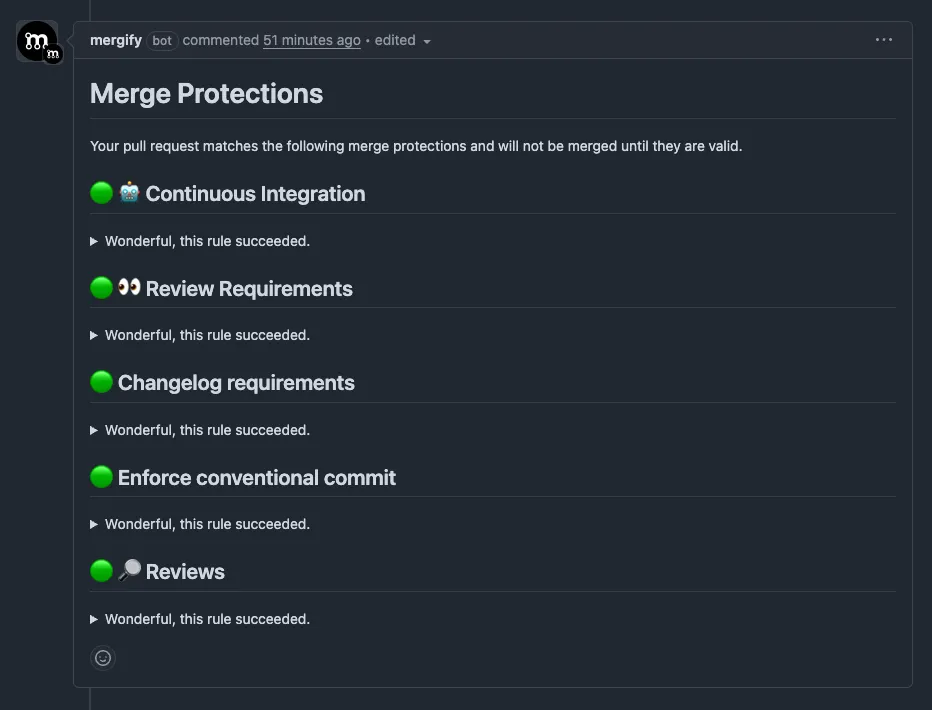Merge Protections
Go beyond GitHub's native branch protections and craft custom, advanced rules using Mergify.
Mergify Merge Protections extend GitHub’s native Branch Protections & Rulesets with fine‑grained, dynamic rules.
Merge Protections let you:
-
Enforce advanced success criteria on pull requests (title patterns, labels, CI signals, file changes, authorship, etc.)
-
Express dependencies between pull requests (block merge until others are merged)
-
Schedule when merges may occur (or enforce freezes)
-
Provide consistent, explainable feedback via a single required check

Why Use Merge Protections Instead of Only GitHub Rulesets?
Section titled Why Use Merge Protections Instead of Only GitHub Rulesets?| Capability | GitHub Native | Mergify Merge Protections |
|---|---|---|
| Conditional logic (complex AND/OR on PR metadata) | No | Extensive |
| Depends‑On relationships | ❌ | ✅ |
| Time / schedule based merge windows | ❌ | ✅ |
| Repository freeze (manual or scheduled) | ❌ | ✅ |
| Single composite check gate | Partial | ✅ |
How They Work
Section titled How They Work- You enable Merge Protections in the dashboard.
- A single check
Mergify Merge Protectionsappears on every PR. - Your protection rules determine whether that check passes.
- You mark the check as Required in GitHub Branch Protection / Rulesets.
- PRs cannot merge unless all active protection rules succeed.
Next Steps
Section titled Next StepsThe feature is composed of several building blocks documented in dedicated pages: